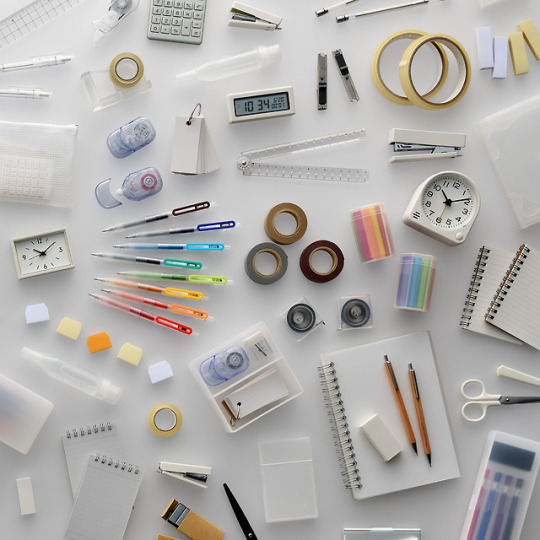19 | SG | sociology major | studygram: cheesestudies my posts
Don't wanna be here? Send us removal request.
Text
please make sure that wherever you’re at in life, you don’t treat it like a transitory period. don’t waste your college years wishing to already be graduated & have a job. don’t waste your single years wishing for someone to be in love with. if/when those things come, they will come in due time and they will be good. but there is nothing like looking back and feeling empty because you wasted literal years ignoring what you had because you were hoping for something better. while it’s important to better yourself and reach for your goals, don’t neglect the present because that’s where you are now and it’s your now that determines your future.
302K notes
·
View notes
Text
hey you look really cute today
april fools you look cute everyday keep it up
515K notes
·
View notes
Text


48/100 days of productivity-March 28th 2019
Another day of working on my lab reports and I made some of the figures while traveling to school.
Quote from @traitspourtraits
424 notes
·
View notes
Text


25.03.19 | discovering new places
I go to this uni since more than 2 years, so how didn’t I find this study place earlier? I’m so busy with mid terms and countless assignments, but the view is making up for it✨
186 notes
·
View notes
Photo


26.03.2019 | lots of post-its and chai.
instagram / shop - printables / youtube
515 notes
·
View notes
Text
10 small tips to improve your productivity
Who can resist reading another little post full of tips to help you get more work done? Here is a few things that I find useful when trying to get myself motivated.
Clear desk, clear mind - I like to organise things before I start working. If things are messy, I get a little preoccupied and procrastinate even more. My suggestion is clear your desk, sort everything you’ll need to study and get on!
The two minute rule - If a task that needs to be done takes less than two minutes, just do it. My dad has often suggested that this is a great way to sort out your priorities and so far it has worked for me. Things like check my emails, cross off events from my planner, file something away don’t take long but get you in the mood for productivity. As they say “object in motion, stay in motion”.
Break your time up - Schedule your study time and any breaks you need to take. This helps structure your day and acts as a motivation to get things done. Especially if you can reward yourself at the end!
Leave your phone alone - Like most people I use my phone constantly but when I’m trying to work, it is best to leave it alone. Out of sight, out of mind. Try leaving it on silent and behind you so you aren’t tempted to pick it up after every beep. Use your break times to check it.
Find your top three to five priorities - Seeing a long list of things to do is usually, for some people, kind of counterproductive. Figure out the main things that need to be done and work on those. If you’re able to complete those main things, you’ll feel like you’ve accomplished the days necessities and may even want to complete some more.
Try using a mindmap instead of a to do list - Apparently using a mindmap layout instead of a traditional list can help boost productivity. It is a little more funky way to see all your outstanding tasks and might not look as overwhelming as a super long list.
Wear headphones - You don’t have to always listen to things but it can help block out any noise that can distract you. If you’re someone that likes some music, try songs with little or no words. This is a great playlist by Spotify.
Don’t multitask - As much as you think you can do it, trying to multitask usually ends up in a confused mess and takes twice the time. Stick to one task at a time. If you think of something you need to do, write it down and do it later.
Change things up - Doing the same things in the same place can get boring. Make the effort every now and then to change where you’re studying or how you’re studying. This can include moving your studying from the desk to the kitchen table for a change of scenery, or making flash cards instead of annotating your notes. Studying with a family member or friends is a fun way to get some work done!
Be positive - Most people have times when they just don’t want to study or anything, it is natural. However it is not worth sitting staring at your books in an unmotivated mood just waiting to feel inspired. If you’re not feeling it, do something else for a while. Come back to it a bit later and have another go. Usually walking away and coming back is all you need to feel more productive.
I hope these few tips are useful! These are the kind of things that work for me, so give them a shot and let me know if they help. Best of luck with your studies x
30K notes
·
View notes
Text
College Note-Taking System
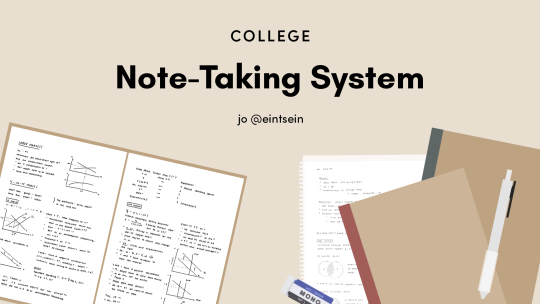
Having cohesive and effective notes is one of the key skills I think one should have, especially in an academic setting. When you’re receiving a ton of information each day, you want to be able to keep track of that and remember what you’ve learned. I’m constantly trying out ways to make my note-taking more effective and tailored to my needs. Here’s what my note-taking system looks like so far.
Quick note: click on the images for better quality!
Class Notes
Taking notes in class is an invaluable way to keep track of the new knowledge you’ve gained. However, depending on the mode in which the lecture material is conveyed, I take my notes differently. Here’s a summary of how I take my notes for each type of lecture, as well as some examples from the classes I’m taking now.
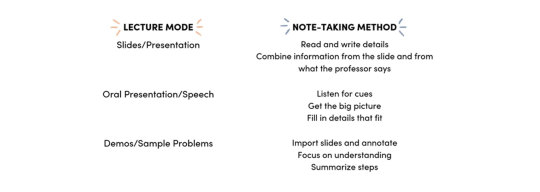
Slides (e.g. Macroeconomics)
Macroeconomics is a class in which you should be able to intuitively understand a lot of concepts but also remember a lot of things. Because of this, I’ve tailored my note-taking method and habits to achieve that goal.
I write my notes by hand because handwriting is more effective in committing things to memory.
As for what I actually do - and this is what I’ve done for other classes in which the professor/lecturer uses slides:
Read/skim over the slide.
Read each bullet point as the professor goes through them.
Copy it down if it’s straightforward or write it down in a structure and diction that I understand better (not necessarily in my own words - sometimes it’s just restructuring, e.g. splitting things up or joining different bullet points together).
Take note of any other important details the professor says about any particular point unless I think it’s intuitive or common sense.
Here’s an example from a Macroeconomics lecture.
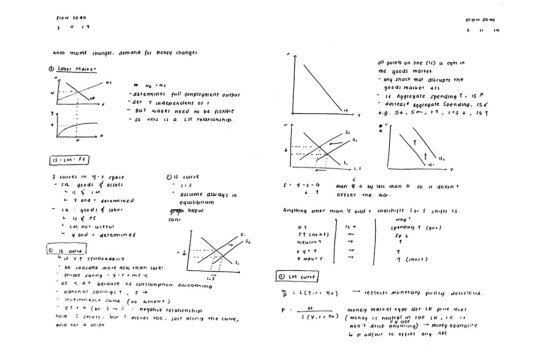
Oral Presentation (e.g. Anthropology)
During classes in which the professor just speaks and doesn’t use much visual material, I listen before I write instead of attempting to write down every single detail mentioned.
Also, I type up my notes instead of handwriting them since the exams are all open-book so I don’t really have to commit things to memory.
Here’s what I do:
Listen for a cue that tells you what this particular part of the lecture will be about (and write it as a heading).
Write down main ideas and their supporting facts/details. If the facts/details come before the main ideas, then I’d usually draw an arrow.
Write down ideas and details from readings in their own section/subsection.
Sometimes, my professor also shows short clips in class, in which case I’d write down the message that I think the clip was meant to convey, as well as things that the professor points out that I didn’t think of on my own.
I’d also look up concepts/ideas/people/events (in real time) that are important to my understanding of the lecture material.
Here’s an example of a Google Docs document from an Anthropology lecture.

Demonstrations and Sample Problems (e.g. Computer Science)
Classes in which the lecture is mainly going through demos and problems are kind of tricky, because you want to know and understand what the professor is doing, but you also don’t want to be writing down every single step that’s being executed. Here’s what I’ve found to be the most effective so far:
If there are any, I import the slides/handout onto OneNote and annotate directly on the slide. If not, I just write down things like definitions, important concepts, and syntax-related things.
I focus on understanding what the professor’s doing with the demo or problem.
I then summarize the steps they took and
Write down comments and points they brought up, e.g. common errors, desirable habits/practices.
Also, these kinds of classes are usually classes in which you’d learn better when you actually do problems yourself, so I definitely learn more when I do assignments and labs than when I’m in class.
Here’s an example from a Web Programming lecture.
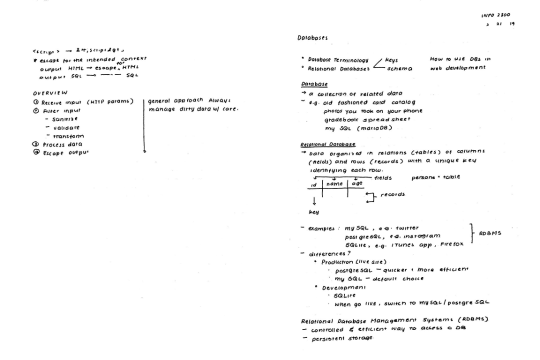
Here’s one from an Object Oriented Programming and Data Structures class. I often draw things to help me visualize the general points.
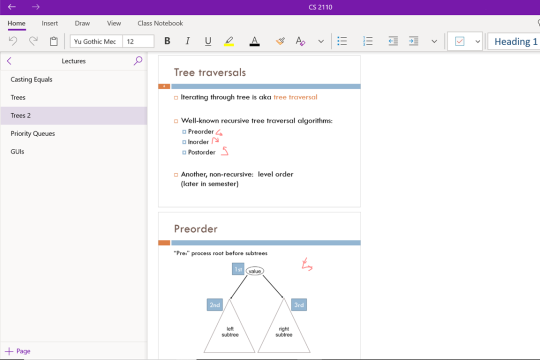
Rewritten Notes
My rewritten notes have definitely changed a lot since high school. Since most of my classes don’t require a lot of memorization, I organize my notes in such a way that they’d be easy to index or find information from. Here are some of the ways I do that:
Establishing a Visual Hierarchy
Having a well-defined hierarchy helps me flow through my notes really well as i read them. It helps me organize information like a mind map without actually making a mind map - I know the big topics and their subtopics and sub-subtopics and details … basically it’s easier to see how these ideas fit together.
But why don’t I just make mind-maps? See, the thing is, a lot of my notes require sequential or linear thinking, e.g. in macroeconomics it might be the sequence of events following a change in the economy, or in computer science it might be a general algorithm for solving a certain type of problem, or it might be proving or deriving a certain equation. These sorts of things just generally don’t work well with mind maps. Instead, establishing a visual hierarchy in my notes helps me organize different ideas while retaining the linear nature of the information.
Here’s what the hierarchy looks like.
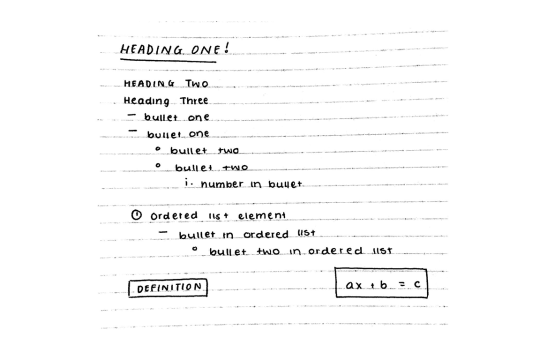
Here is an example from my Web Programming class, which is a purely project-based class, so no prelims or exams. As you can see, I draw rectangles around important terminology so that I can easily find them while I’m working on a project. I also include examples from in-class activities as well as notes on syntax so I have an idea of how to implement certain things. These examples and notes are further grouped by terminology/concept.
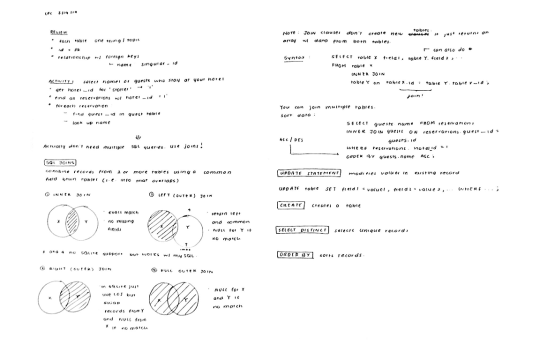
Structuring Them for Easier Flow
My syllabi for my college courses are nowhere near as detailed as the syllabi for my high school courses - those of you who take/have taken Cambridge exams would know. In college, my syllabi are only lists of topics and not what you’re expected to know for each topic. Because of this, I have to find a way to arrange information so that I can achieve the most comprehensive and cohesive understanding of that topic, i.e. so that the flow of my notes is similar to the flow of my thinking.
For example, in my economics notebook, I like to have the details first (e.g. the separate markets: the goods market, the assets market, and the labor market) and then the big picture later (IS-LM-FE). Some people prefer the other way around - seeing the big picture and then going into the details - which I can understand and have done myself for certain topics.
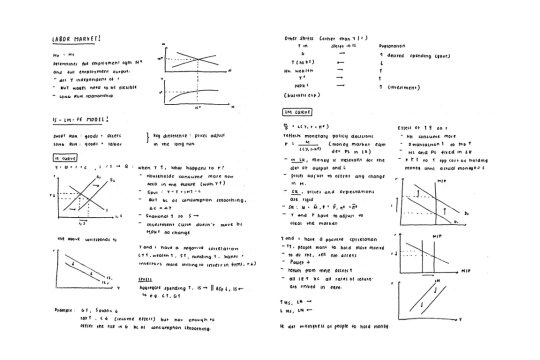
Making Use of Proximity and Spacing
I very much dislike notes without good use of spacing and grouping things together. Keeping related ideas in visual proximity helps your brain (or at least mine) organize this information. It’s also a lot easier to find things and visualize your notes when they’re not just a huge chunk of text.
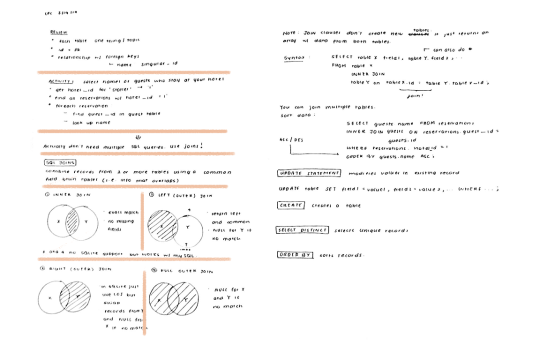
One thing I should probably mention is that I don’t use colored pens anymore because it just takes a lot of time to switch pens and think of a color palette. I also don’t have much use for it. In the past, I used color to help me memorize and group things in different categories, but now, I’ve found that there aren’t a whole lot of categories I need to keep track of, and when I do, I can do so with just one pen but changing the style of the text.
And that’s what my note-taking system currently looks like. It’s working well so far, but I still think there are other things I could try out that might be a better fit.
So yeah, hope this was helpful, and as always, feel free to drop an ask if you have any questions, or even if you have any suggestions or would like to share your note-taking system. Have an awesome week!
10K notes
·
View notes
Text
good emotional skills to know 4 college but also in general
this is stuff that i’ve found helpful and am in the process of working on. they may not be achievable for you without help and may not work for your specific circumstance, but this is a list of suggestions that you might be able to think about. i am also not a mental health professional so please do feel free to contradict me!!
self soothing. having a toolbox to take care of yourself by yourself. bc sometimes nobody else is available and you just gotta put some lotion on, listen to a tune, and go to bed early.
checking in. checking in with yourself to see if you’re okay. knowing how to alter your strategies when your strategies aren’t working. knowing when your strategies aren’t working. this is just taking some time every day to reflect on what goals you didn’t meet and why and what you can do to fix that.
there’s nothing you “should” be doing. if you get caught up thinking “i should be doing x” that’s false! stop that! “should” be doing better implies that you have some obligation to do whatever it is that you “should” be doing. you don’t owe anybody except yourself. analyze why you think you should be doing that thing and change that into…. “i want to be doing x because…” or “doing x will make me happier, because…”. overall, more productive and less self-shamey.
disconnecting from the crowd. eating in a crowded dining hall can be stressful! knowing how to be alone in a crowd and stay calm is helpful
being okay with being alone. tbh college is kind of… being alone a lot, in my experience. even though you’re surrounded by people, a lot of time is spent alone. making friends is hard. your friends have different schedules. you’re busy. shit sucks. we make the best of it.
knowing yourself. this relates to a lot of what i’ve already said but like. knowing your emotional state and knowing what helps trick the monkey brain is helpful. stop repressing your feelings, friends.
talking to strangers. ordering from a menu! paying library fines. going to office hours. asking for a cashier at the register if there isn’t one. ya this is hard. ya you gotta expose yourself. sometimes i just try playing a persona. like this isn’t me ordering a sandwich. this is a cool me who knows how to talk to people who is ordering a sandwich.
you don’t have to be friends with your roommates. you just have to live together in a way that doesn’t make you two hate each other. ideally, you two will coexist in a way that doesn’t interfere with the other’s daily life.
give and taking. on the topic of roommates, sometimes your roommate can be a shitty person, but sometimes you are the shitty person! give a little but if they’re negatively impacting your life, communicate.
communicating during disagreements. explain what your emotions are instead of blaming them. “i feel hurt when you…” or “i feel frustrated when” or “i feel unappreciated when.” if things get heated, ask if you both can take a ten minute break and then come back. and don’t bring up disagreements when the other party is preoccupied or going somewhere. you can legitimately schedule a discussion.
it’s okay to apologize. learning to swallow your pride gets easier each time.
knowing that people work differently than you. some people are not gonna click with you and it’s gonna seem like they have this whole brain process up there that is totally unlike yours. and yeah! that’s how it is. and that’s chill if they aren’t hurting anyone else. work with them and be flexible!!
comforting people. you will probably/definitely see someone cry! hell if i know how to comfort people. someone please help. but some things i’ve learned are: 1) different people need different things. different people need different things! 2) people need different things at different times. 3) you can ask them what they want and it won’t be weird. 4) apparently a lot of people like hugs? but ask. and it’s okay to not want a hug. 5) just show that you care in some way if you don’t know what they need. i used to think that if somebody needed to tell me what they needed it was a sign that i just didn’t know them well enough and we weren’t compatible or i wasn’t being a good friend. that’s fake! friendship isn’t based off of fitting naturally in every way and making an effort to be good for them is important.
knowing it’s okay to not be liked by everyone. it’s okay if strangers think you’re dumb because you said something dumb in public. you know you’re not dumb. it’s okay if not everybody you meet likes you. it’s okay if you do something cringey. everybody has their own shit to deal with and you will not shatter their world. grow and move on!
forgiving yourself. i’m trying this new thing where when i feel embarrassed about something i say. out loud. “i forgive myself.” and then i just try to grow from that and move on without getting caught in a spiral of shame.
knowing what you need vs what you want and what is better at the time. what you need: a shower. what you want: to not do that. solution: take a shower! or maybe what you actually need is to go to sleep? but guess what. you probably know what is good for you. the hard part is actually doing it.
realize that building habits is less work than discipline. emotional effort is expended every time you have to make yourself do something. just make it part of your routine and you’ll just think it’s normal to do all the good things! like, for example, i’m trying to make it a habit to eat structured meals instead of a “eat when i’m hungry” thing because i know that makes me skip meals, which is bad!
you won’t be able to do everything. forgive yourself for that. write down things that are top priority and focus on them. everything else is not important right now and you shouldn’t beat yourself up for not being able to do them.
your health is important. i’m not saying health will solve all your problems. it won’t! but health will cause a lot of your problems to go away. because let’s face it. not sleeping causes a lot of problems.
it’s okay to ask for help. we say this a lot but it’s hard to internalize it. here’s a thought: there’s so much shame and hesitation about asking for help so by doing that you’re actually being proactive (which is respectable) and mature, and therefore… not weak or stupid. ask for help even before you need it! most people love to help others. and especially take advantage of people who are OFFERING help. for example: counselors at school or TAs. it’s literally their job. they want to do it. and if you don’t want to talk to anybody in real life, my inbox is always open.
16K notes
·
View notes
Text
a list of things every studyblr experiences
failure
stress
disappointing results
procrastination
problems finding a work, life and study balance
nervousness
not always great or consistent grades
varying degrees of mental health issues
situations out of our control
that ‘i’m not good enough’ feeling
anxiousness
lazy days
regret
tiredness
burning out
low confidence
sickness
and many more
having a study blog does not mean that person is a perfect human with everything in life on track, in balance and with complete happiness. as a community, we need to remember not everything goes to plan and no-one should be expected or seen as perfect x
9K notes
·
View notes
Text


22.03.19
cozy studying in my london flat ⭐️
today, we had to hand in our essays! i’m officially all done with my master’s coursework, minus the summatives in april and the dissertation over the summer. yay!
13K notes
·
View notes
Text




EPIDEM 100: Principles of Epidemiology Midterm 1 Review (from “Epidemiology” by Gordis)
This midterm yesterday was pretty easy ples hope for a good score
447 notes
·
View notes
Text


this is probably one of my favorite pictures. i love sending letters to penpals so much, even though i’m just starting out, i love imagining the letter travel past country borders. 🕊
5K notes
·
View notes
Text
“The best people I know are always evaluating and improving themselves. The unhappy people are usually evaluating and judging others.”
— (via purplebuddhaquotes)
2K notes
·
View notes
Text
Someone come with me to a foreign city and explore museums and cafés and local thrift shops
56K notes
·
View notes
Text
I honestly think that crying over a book is one of the most prominent sign of compassion for humanity. You’re crying over someone who isn’t really there, doesn’t really exist, but you still feel for them as if you have known them your entire life.
280K notes
·
View notes
